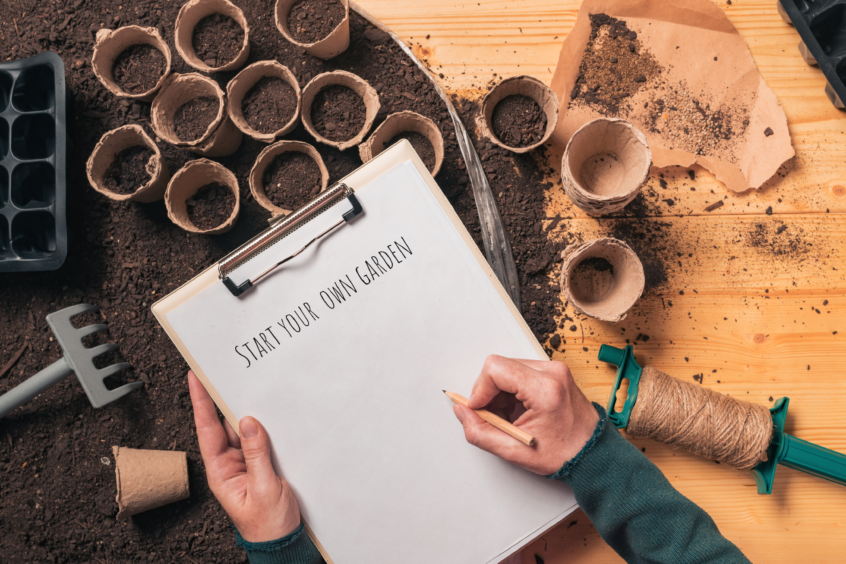Mary, Mary Quite Contrary, How Does Your Garden Grow?
The popular nursery rhyme makes it seem so easy to start a garden, but there is a lot of information that you will want to consider if you are interested in starting one at home and growing your own produce. To help you get started, we’ve put together some basics to keep in mind.
LIGHT – in order for your garden to be successful, you will want to make sure you place your garden in the best spot possible. Plants such as herbs, fruits and vegetables need full sun for at least 6-8 hours per day, so make sure you place your garden or container in a spot that will allow for this.
WATER – It will be important to make sure that you have a source of water nearby. This can be from a hose or a rain barrel that has collected water. While the plants will need water, you don’t want to overwater and drown your plants. The goal is to keep the soil moist but not soaking wet. To figure out if your plants need water, stick your finger down into the soil (about an inch) or up to your first knuckle. If the soil feels dry, add water. At the height of summer, you’ll probably need to water at least once a day and if you have a container garden, sometimes twice a day depending on how much rain we get. If you are using a rain barrel to water your plants, you will need to have it close to a building that will allow you to attach a downspout from an eves trough. You will also want to elevate it allowing for some water pressure when watering.
FERTILIZER –Most plants are started in soil that has a lot of nutrition to get them going. However, plants need a little extra nutrition or “food” over the course of their growing. You can purchase your own fertilizer from any store and follow the directions on the label. There are a lot of plant fertilizers out there. Make sure you get the right one for plants you plan on eating later. You can also try making your own compost tea as a more natural fertilizer! Check out this link to see how you can do it. http://www.homecompostingmadeeasy.com/composttea.html
SEEDS VS PLANTS – What is best to use to get a garden started? You can start your veggies, fruits and herbs from seed or you may choose to buy small plants. Starting your own seeds is less expensive than buying plants, but you will have more work to get them started. Some vegetables are easy to grow from seeds such as beans, peas, radishes, and lettuce. Often people will choose plants for things like tomatoes, cucumbers, peppers or eggplant, but in the end it comes down to personal preference and time.
The most important decision will come down to which plants you should grow. The best choice is to go with what you will eat, your family’s favourites, but it might also be an opportunity to try something new. You will want to consider how long each plant takes to grow which can be found on the package of seeds or tag on the plant. Some plants like radishes come up quickly and you can always do multiple plantings, whereas tomatoes will take longer to be ready for harvest, but will last longer and produce more over the season. Plants like cucumbers, zucchini, watermelon and others with long vines can take up a lots of room in your garden – so consider that when you are deciding what to grow. You will want enough space for everything!
Both seeds and plants can be purchased from many local suppliers or hardware stores. Although you can’t go into the stores right now, many are open for curbside pickup or delivery. Simply just go online, or, call ahead and place your order! Seeds can also be ordered through a number of different online catalogues and shipped right to your house.
If you are looking for help, we have a lot of great resources in Chatham-Kent. Many communities have local horticultural societies that are a great sources of information. They can be found online or on social media! CK Public Health will be sharing a lot of information, tips and videos over the next little while so follow along to learn more! If you have questions, reach out and let us know what you want to learn about!
Dig a little deeper! (get it?) Raised Beds or In-Group Garden?
Container and Vertical Gardening – how to garden in a small space

